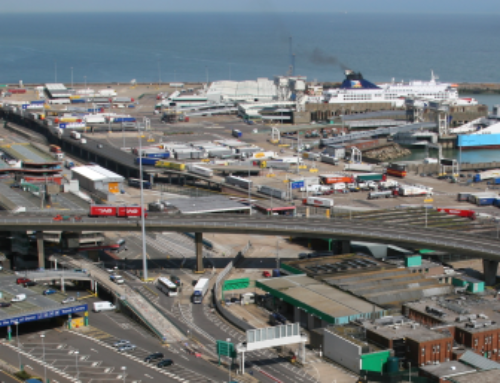RHA calls for clarity on NI customs changes
 The Road Haulage Association (RHA) last month called for government to meet with hauliers to provide clarity on the Windsor Framework, which was agreed by UK and EU negotiators earlier this year in a bid to resolve issues resulting from Brexit around the transport of goods between Great Britain and Northern Ireland.
The Road Haulage Association (RHA) last month called for government to meet with hauliers to provide clarity on the Windsor Framework, which was agreed by UK and EU negotiators earlier this year in a bid to resolve issues resulting from Brexit around the transport of goods between Great Britain and Northern Ireland.
The association urged the government to set out how customs and sanitary and phytosanitary (SPS) processes would work new under the system, and said its members were seeking guidance on issues including the movement of goods from or through Northern Ireland to Great Britain; the new trusted trader scheme (TTS) which will enable businesses to submit standard commercial information for goods moving from Great Britain to Northern Ireland rather than complex paperwork; and the new ‘green and red lanes’.
Under the agreement, goods from Great Britain destined for consumption in Northern Ireland will be able to travel through a new ‘green lane’, while a separate ‘red lane’ will be for goods subsequently destined for the EU. Only TTS members will be able to benefit from the simplified processes of the green lane.
“Many firms feel the ‘green lane’ is complicated and burdensome – and primarily designed for moving retail goods, and goods for small companies, both with end consumption in Northern Ireland,” said RHA.
“The ‘red lane’ appears to be bureaucratic with all goods subject to full customs and border controls up front – including goods destined for Northern Ireland.
“Members say it’s not clear how the process for moving goods from the EU to Great Britain via Northern Ireland would be different for goods from Northern Ireland to Great Britain.”
The association has also called for a haulier-focused forum to be established, which could be used to share information and improve communication.
“We’ve consulted with our members and studied the practical workings of the Windsor Framework on our sector and the Northern Ireland economy,” said Richard Smith, RHA managing director.
“Our members are increasingly concerned that it’s still not clear how the arrangements would reduce bureaucracy and work in real-time conditions.
“We urge ministers to work with us and other stakeholders to make new arrangements as fluid as possible to protect our supply chains.”












